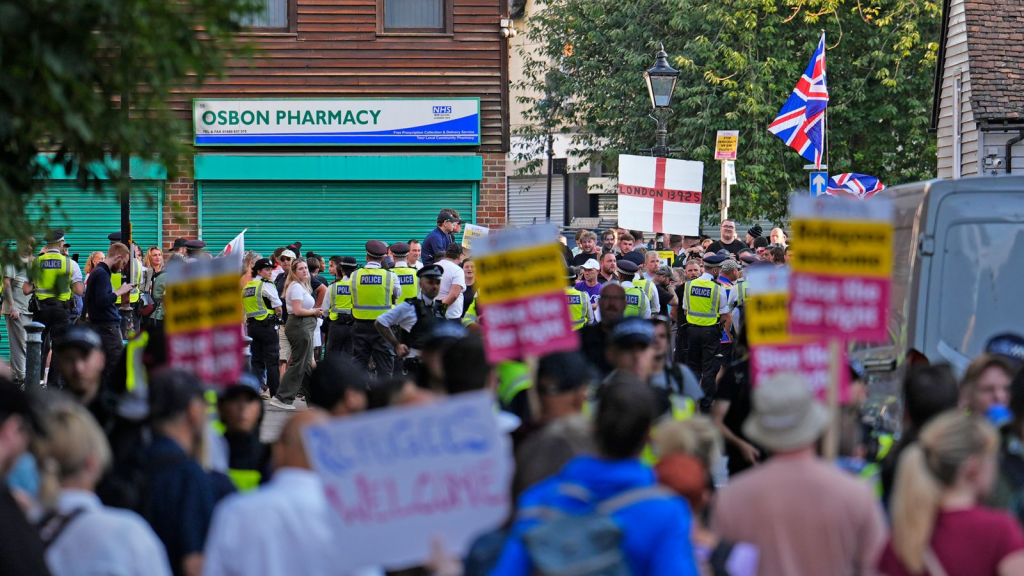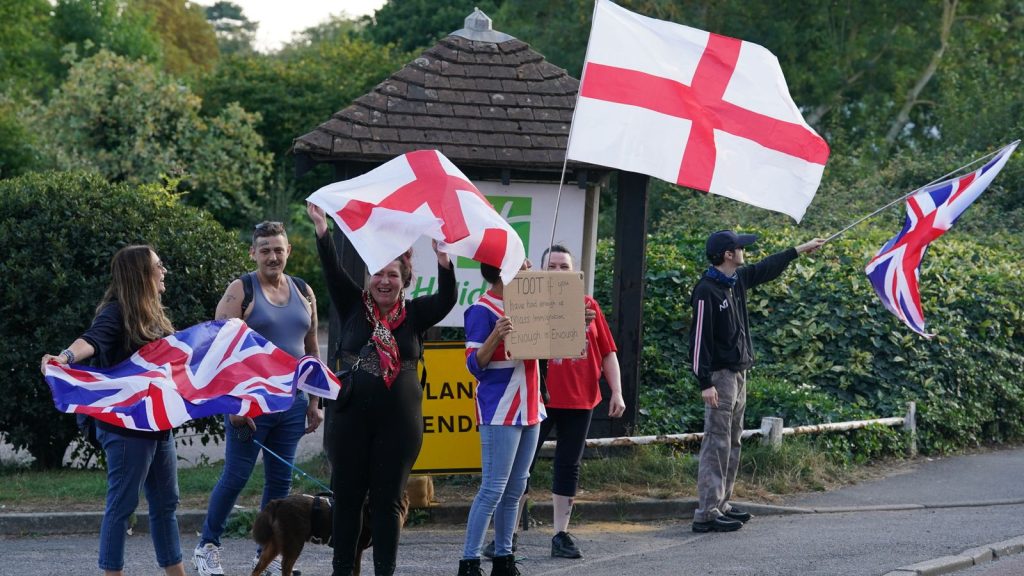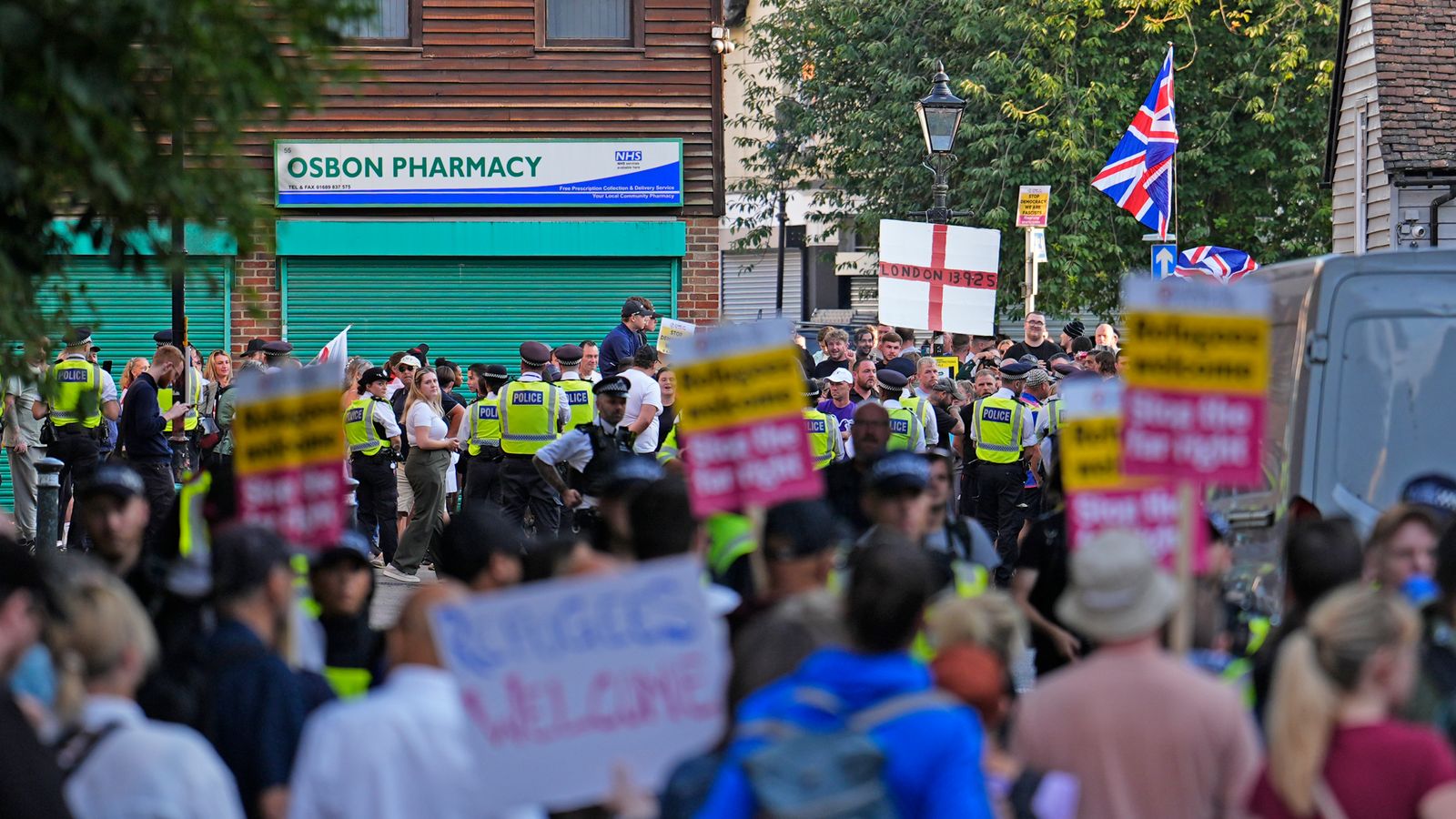A weekend of nationwide protests over asylum housing erupted on Friday evening, with demonstrations and counter-demonstrations staged outside hotels accommodating asylum seekers. The campaign, branded under the slogan “Abolish Asylum System”, has at least 33 planned events across England, Scotland, and Wales over the bank holiday weekend.
Major cities including Bristol, Liverpool, Newcastle, and Wakefield are expected to see rallies, while counter-protests organised by Stand Up To Racism will mobilise in many of the same locations, signalling an intensifying clash between anti-immigration groups and pro-refugee campaigners.

The first flashpoints came on Friday outside the TLK Hotel in Orpington, South London, where anti-asylum protesters shouted slogans such as “get them out” and “save our children.” Counter-demonstrators responded with banners declaring “Refugees welcome, stop the far right.” Police intervened with cordons but confirmed no arrests were made.
The rise in tensions follows official figures showing more than 32,000 asylum seekers currently lodged in hotels—an 8% increase since Labour came to power. The use of hotels has become a symbolic battleground, particularly after the Epping case, where protests intensified when an asylum seeker was charged with sexually assaulting a 14-year-old girl. The subsequent High Court injunction to block further use of the Bell Hotel in Essex is now under government appeal.
At the political level, immigration has once again become a wedge issue. Nigel Farage, leader of Reform UK, pledged “mass deportations” of undocumented migrants if his party gains power, even at the cost of leaving the European Convention on Human Rights. He promised five deportation flights a day, dismissing concerns about Afghan nationals at risk of persecution by arguing Britain cannot take responsibility for global crises.

Labour officials swiftly dismissed Farage’s rhetoric as “pie in the sky,” pointing to government figures claiming 35,000 removals in the past year, a significant increase from the Conservative record. Labour has committed to phasing out hotel use by 2029 but faces criticism for delays and lack of clarity over alternative housing arrangements.
Meanwhile, Conservatives accused Farage of recycling old Tory policies, noting that he had previously dismissed mass deportations as unrealistic. The political bickering underscores the fractured consensus on immigration, with each party using the asylum issue as a testing ground for broader arguments about national security, sovereignty, and human rights.
Local councils have also been dragged into disputes. In South Norfolk, officials revealed that the Home Office will stop housing asylum seekers at Diss’s Park Hotel after protests erupted over plans to accommodate single men instead of families. While the council leader welcomed the U-turn, he acknowledged the outcome would still displace women and children currently staying there.
Critical perspective:
This latest wave of protests reflects how asylum policy has become both a grassroots flashpoint and a political football. Far-right mobilisation around hotels highlights how individual criminal cases are leveraged to stigmatise all asylum seekers, while counter-movements expose the moral divide in public opinion. Labour’s pledge to end hotel use by 2029 seems politically cautious but operationally weak, especially against the populist hardline promises of Reform UK. Meanwhile, local councils are left struggling to balance public anger, humanitarian responsibility, and central government decisions that often appear reactive rather than strategic.



